Today we are taking a look at the FS S3410-48TS-P PoE+ switch. Recently, we have looked at many midrange switches from FS.com, including 10, 25, 40, and 100GbE options. We say “midrange” as a bit of foreshadowing here. This switch is a PoE+ model designed to deliver a lot of power to connected devices. Let us get to it.
FS S3410-48TS-P PoE+ Switch External Hardware Overview
The front of the S3410-48TS-P is a 48-port PoE+ switch. There are also some fiber cages that we will get to in a bit.
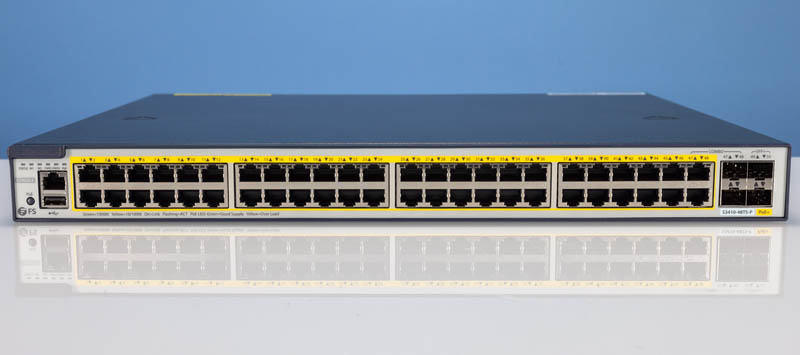
The switch itself is a 1U form factor measuring 14.17” or 360mm deep.
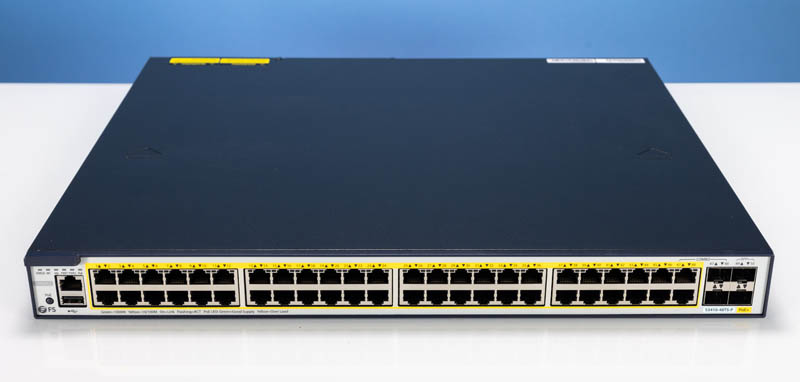
On the left side of the switch, there is a console port and a USB port. Notably, this switch does not have an out of band management port.
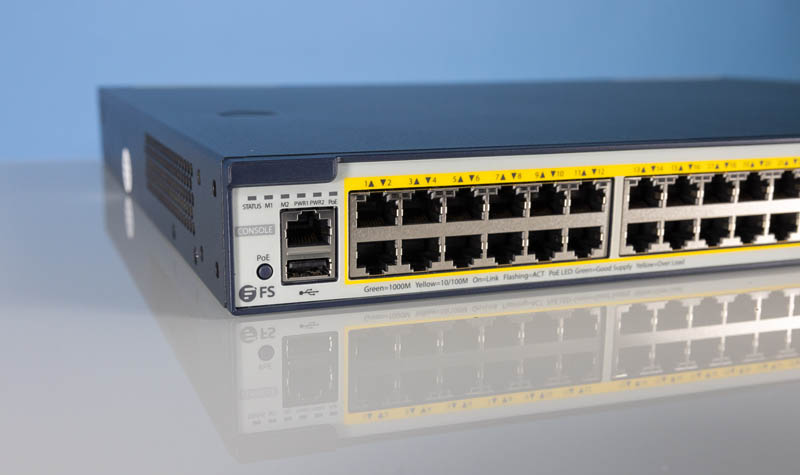
The SFP and SFP+ cages are on the other side of the switch. Ports 47 and 48 are combo ports that can be used either for copper or SFP. Then ports 49 and 50 are the SFP+ cages for 10GbE uplinks. Those looking for full uplink bandwidth for 48x 1GbE devices would look at a different switch. Still, there are many PoE/PoE+ devices out there that use under 100Mbps speeds, so having two SFP+ uplinks should more than satisfy most in the market for this class of switch.
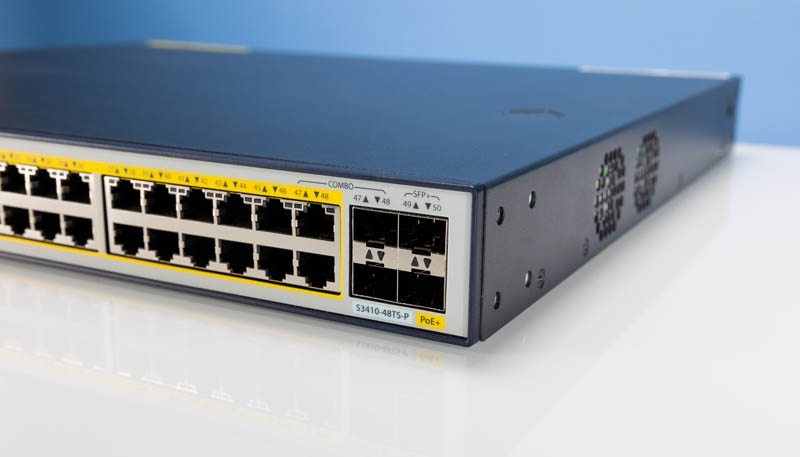
As one can see, there are two fans. Unlike the higher-end switches, these are side-mounted fans.
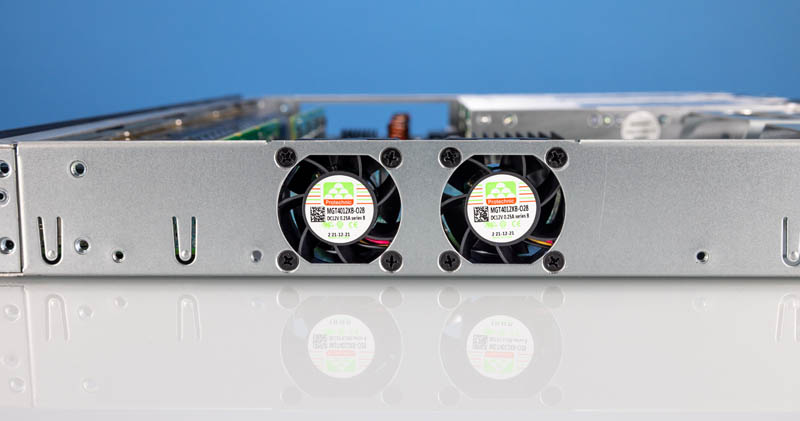
At the rear of the switch, we see some differences as well.
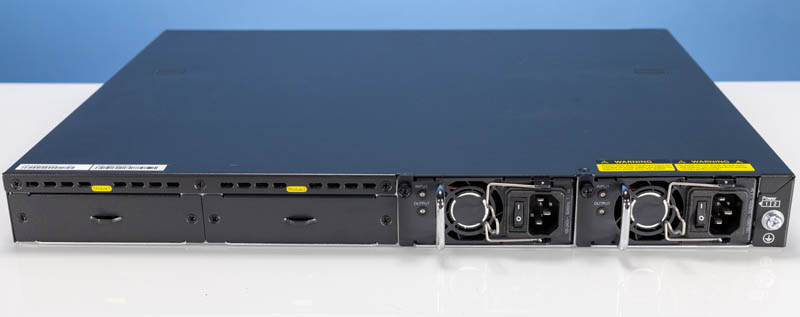
The biggest difference is that this switch has expansion modules. We did not see documentation on which modules this switch supports if any. We will call them expansion module slots since that is how they are marked, but that should be noted.
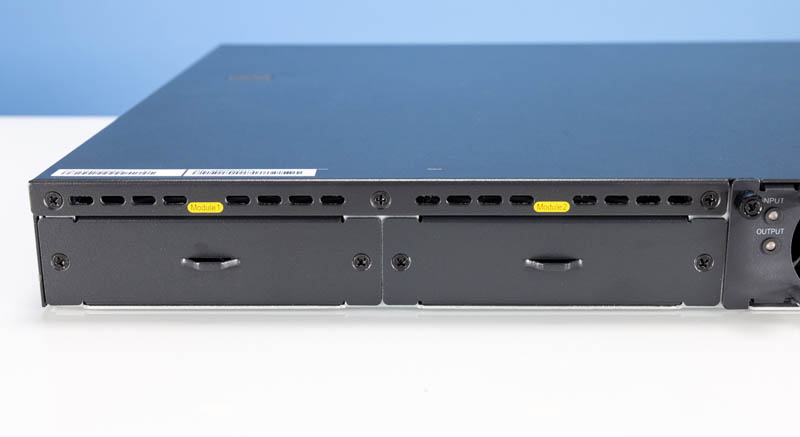
The power supplies are redundant and include wire retention devices.
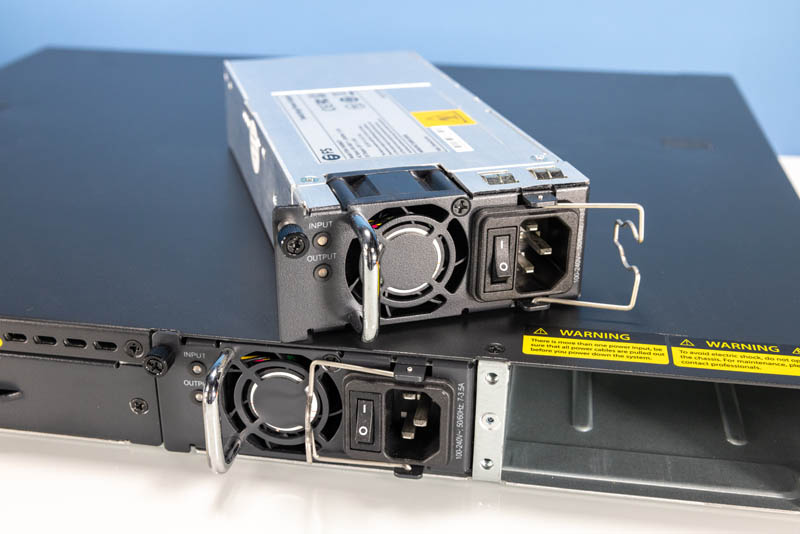
One other different aspect of this switch is that both power supplies have on/off switches. They also use a different connector than a CRPS server power supply and many other switches.
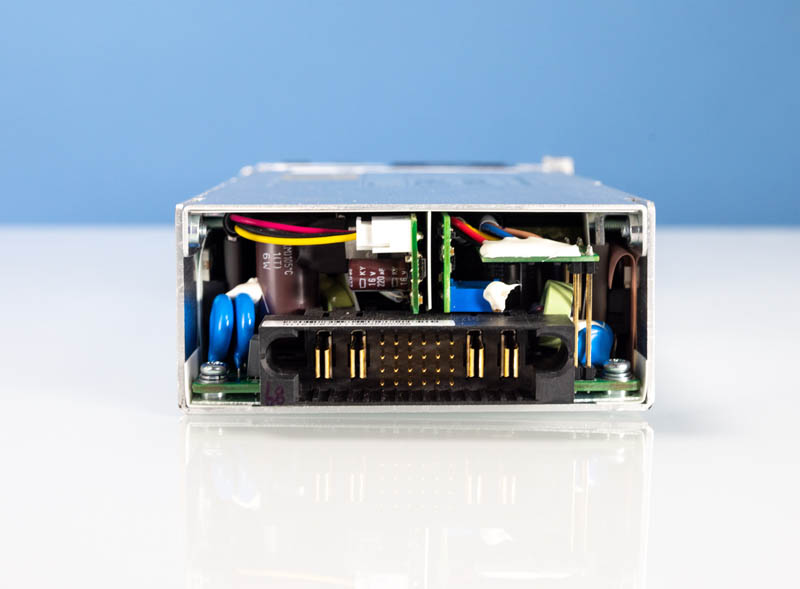
Next, let us get inside the switch to see the hardware making this switch work.


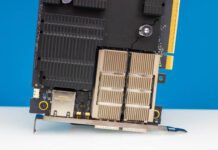
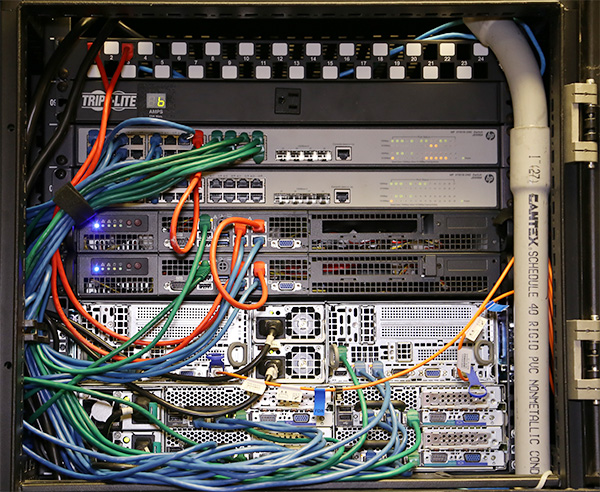
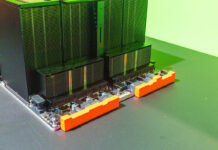
Aren’t those plain S-ATA power & data connectors in front of those expansion cages? Also, CLI being short for ‘command line interface’, wouldn’t it be more apt to just talk about a web UI for the web interface? I see nothing command line in those screenshots :-).
You may want to consider support and warranty when evaluating these FS switches. They only have a 30 day replacement warranty. After that you have to ship it back to their US facility and then they send it back to China for repair. The whole process takes several weeks and unless you have a cold spare handy and backup configs, you are kinda hosed. I’m not against FS switches, just want people to be aware that in pretty much any production environment they will probably need to buy spares, which then means they aren’t quite inexpensive as they first appear.
I’d have loved to see mention/comparison between this and mikrotik’s CRS354-48P-4S2QRM which trades the expansion and modular power supplies for a higher bandwith and lower price point(alongside routerOS if that’s something you’re familiar with)